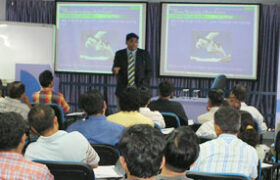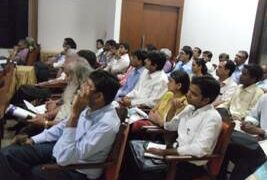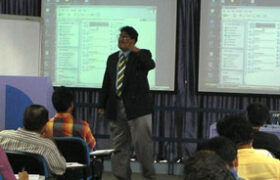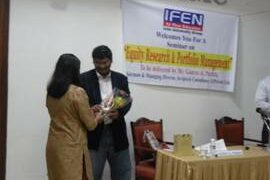Stake sale would bring down promoter level debt from Rs 3,300 crore to Rs 2,200 crore
The promoters of Emami Group have sold 10 per cent of their stake in Emami for around Rs 1,230 crore, which will partially bring down promoter-level debt.
The stake sale was executed on the floor of the stock exchange on Monday at Rs 271 a share to institutional investors.
Mohan Goenka, director, Emami Group, said the stake sale would bring down the promoter-level debt from Rs 3,300 crore to Rs 2,200 crore. After repaying the debt, the pledged shares would come down from 47-48 per cent to 37 per cent.
However, the promoters are looking at bringing down the debt further from Rs 2,200 crore. The company statement mentioned that it had more than an adequate pool of diverse assets of value.
Goenka said the process of identification for divestment of such assets had been initiated. The assets could be the group’s land bank in the real estate business, cement and hospital, he said. He said a dilution in favour of a strategic or private equity player in these verticals was being looked at. Asked whether it would be partial or complete exit, he said, it would depend on the value. The promoters resolved to pare the debt of the group within six to eight months.
This is the second stake sale undertaken by the Emami promoters in less than six months. Earlier, in February, promoters had sold a 10 per cent stake for Rs 1,600 crore. The purchasers included SBI Mutual Fund, PremjiInvest, Amundi, IDFC, L&T Mutual Fund and others.
The stake sale proceeds reduced promoter debt used in the creation of assets like cement, solar power etc. Much of the money was believed to have been used for expansion of the cement business. After stake sale, the promoters’ stake in February had come down from 72.74 per cent to 62.74 per cent.With the latest round of stake sale, the total promoter stake in Emami stands at 52.74 per cent and the intent was to maintain the controlling majority stake without diluting it further.
“The promoters are committed towards being proactive in addressing business and industry challenges and working in the best interests of all Emami Group stakeholders; the stake sale and asset identification activity are examples of steps towards this commitment,” Goenka said.
Aditya Agarwal, director, Emami Group, said, “The deleveraging of debt is a priority for the Emami Group’s promoters. We have always endeavored and continue to endeavor to take all such steps as may be necessary to fuel growth.” As far as Emami was concerned, Goenka said the current quarter was a little soft due to elections, but after June business, was expected to pick up.
The Emami stock plunged after the block deals. Shares of the fast-moving consumer goods firm dipped 7.59 per cent on the BSE to Rs 267.30. It also touched a 52-week low of Rs 246. The stock’s 52-week high was Rs 598.95.
https://www.business-standard.com/article/companies/emami-group-promoters-divest-10-stake-for-rs-1-230-crore-to-pare-debt-119062401178_1.html











